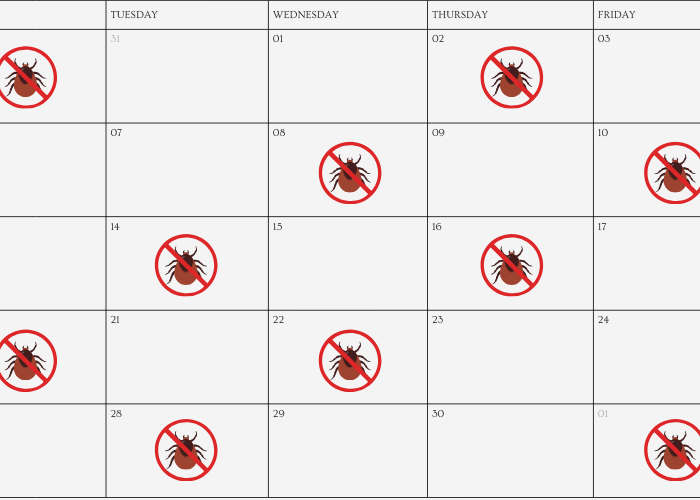

Why Previously Vector-borne Disease Positive Pets Should Still be Screened Annually
Early detection of vector-borne diseases (VBDs) is vital for successful treatment and speedy recovery. That said, sometimes, when a patient has already been exposed to a particular VBD, veterinarians may choose not to screen for it again or as regularly as they normally would. However, previous exposure does not prevent the pet from being exposed again by the same vector and should not preclude these patients from their annual comprehensive VBD screening.
Let's take a look at the risks that previously VBD positive patients face and the critical role of annual VBD screening.
Risk of Re-exposure
Pets can be exposed to vectors carrying the same or different pathogens over and over again, and any lapses in preventive treatments can put them at risk. This being the case, dogs with previous exposure should stay at the top of the list for annual screening. Since co-infection with more than one tick-borne pathogen is also possible and may worsen clinical signs, broad diagnostic screening for multiple pathogens is critical in dogs with known tick exposure demonstrated by positive serology for one of these pathogens.
It's important to note that, while direct tests (particularly polymerase chain reaction, or PCR, tests) will be negative after successful treatment, pets may remain seroreactive for variable but sometimes lengthy periods of time, even after successful treatment. If you're treating a dog for a VBD, don't expect the serology to return to negative prior to stopping antimicrobials—it may take months or even years for particularly sensitive serological tests to become negative again.
VBD Positive Pets Can Be Exposed Again
Even if a pet has previously tested positive for vector-borne pathogen exposure or has recovered from a disease, it does not mean they are immune to future infections. Most vector-borne diseases do not induce protective immunity, meaning they can infect pets more than once.
Without appropriate preventive measures, dogs can have multiple bouts of Lyme disease, ehrlichiosis, anaplasmosis, and even heartworm disease. Multiple episodes of Lyme disease are particularly common in people and may be in dogs, as well. The only common VBD that may induce long-term immunity in both dogs and people, preventing multiple infections, is Rocky Mountain Spotted Fever.
Regular screening is crucial, as it helps veterinarians understand the risk of exposure, particularly tick exposure, and can allow veterinarians to more effectively pick up on new infections. For example, annual VBD testing in a dog that recovered from anaplasmosis within the past year might show residual seroreactivity, but two or three years later, that may disappear. If the dog then tests positive again during a future illness, it is easier to interpret that result as a new exposure.
Importance of Early Detection Through Screening
Comprehensive screening plays a vital role in preventing the severe effects of these diseases. Early detection through regular screening allows for timely intervention, which can significantly reduce the risk of long-term health issues. While some vector-borne pathogens—Anaplasma phagocytophilum and Rickettsia rickettsii, specifically—generally cause acute disease only, most others can have chronic manifestations. This highlights the importance of annual screening, so that exposure to these chronic diseases is noticed before the development of serious and irreversible damage from infection.
Regular screening is an important component of a comprehensive prevention plan for vector-borne disease, regardless of previous exposure—and likely even more important in dogs whose lifestyle puts them at risk for lots of vector exposure. The risk of re-exposure is always present, and early detection through annual screening can contribute to improved outcomes and reduce the long-term consequences of chronic illness.
By prioritizing preventive care and regular screening, veterinarians and pet owners—especially owners of dogs who are already on high alert for vector exposure because of a previous positive test—can help ensure their pets' health and well-being.







